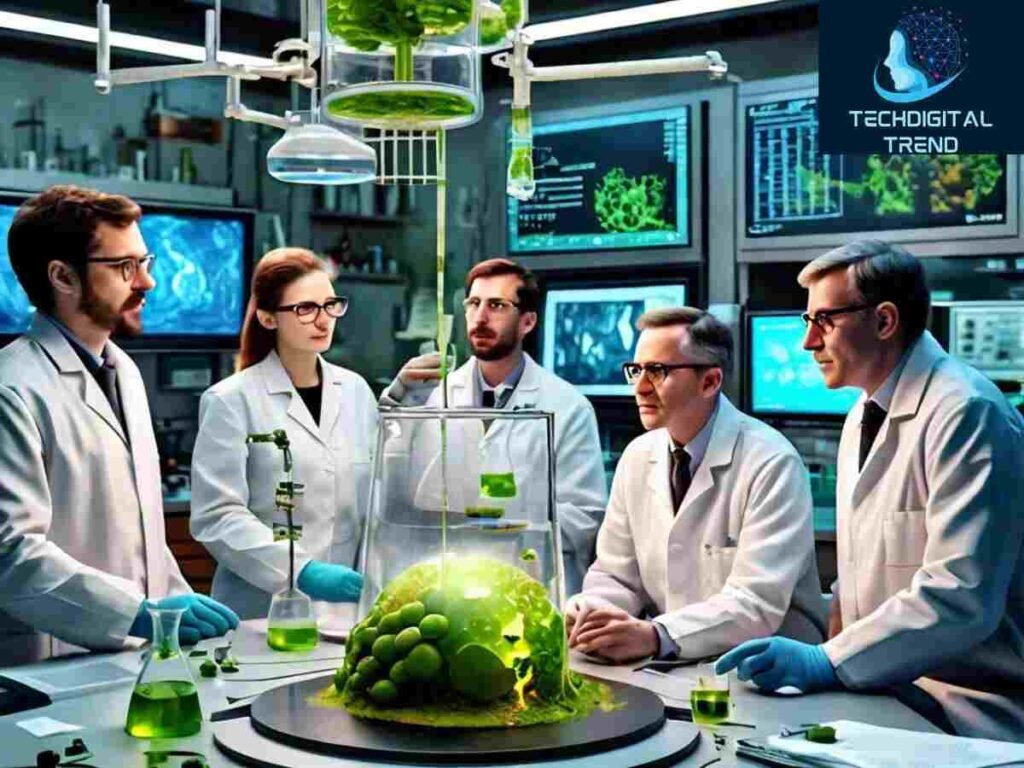Table of Contents
ToggleBiotechnology
Biotechnology has been transforming many facets of our existence, including environmental sustainability, healthcare, and agriculture. It is anticipated that this field will see major advancements in 2024 with further research and innovation. The top 5 biotechnology developments that will drastically improve our quality of life are examined in this article.
Gene Editing: An Emerging Era in Medical Science
CRISPR/Cas9 and other gene editing technologies have gained traction in the medical field. With the use of this technique, doctors will be able to treat hereditary illnesses by precisely editing genes. We may anticipate the application of gene editing in 2024 to treat hereditary illnesses, create customized medications, and possibly bring back extinct species.
The following are some ways that gene editing might change healthcare:
- Managing genetic disorders: Gene editing offers the possibility of correcting genetic mutations, hence providing a treatment for inherited diseases such as sickle cell anemia and muscular dystrophy.
- Creating individualized drugs: Gene editing can be used to create drugs that are unique to each patient’s genetic composition. Through gene editing, it is possible to bring extinct species back to life while also safeguarding ecosystems and biodiversity.
Bioengineering: Curing the Progression of Diseases
The subject of regenerative medicine is expanding quickly and is centered on replacing or mending damaged organs and tissues. Significant progress in stem cell therapy, tissue engineering, and biomaterials is anticipated by 2024. New therapies for long-term conditions like diabetes, Parkinson’s disease, and heart disease will result from this.

The possible uses of regenerative medicine include:
Regenerative medicine has the potential to restore function and enhance quality of life by repairing damaged tissues. Regenerative medicine has the potential to repair damaged organs, hence obviating the necessity for organ transplants.
- Treat chronic illnesses: By using regenerative medicine to create novel therapeutics, chronic illness outcomes can be improved.
Engineered Biotechnology: Creating Life
Synthetic biology is the study of creating new biological systems, like microbes, to carry out particular tasks. We can anticipate the application of synthetic biology in 2024 to create individualized medications, clean up environmental contaminants, and create sustainable biofuels.
Potential uses for synthetic biology include:
To lessen our dependency on fossil fuels, synthetic biology can be utilized to generate sustainable biofuels.
- Eliminate environmental pollutants: Synthetic biology can be used to create microbes that can eliminate contaminants from the environment and help ecosystems recover. Create individualized medications: By using synthetic biology, medications that are particular to a person’s genetic profile can be created.
Biotechnology in Agriculture: Sustaining Future Generations
Thanks to biotechnology, farmers can now grow crops that are more resilient, nutrient-dense, and sustainable. We may anticipate the creation of new crops in 2024 that will be able to flourish in difficult conditions, thereby lowering the demand for fertilizers and pesticides.
In agriculture, biotechnology has the ability to:
- Boost crop yields: Crop yields can be raised by using biotechnology to create more resilient and fruitful crops. Boost nutrition: By creating more nutrient-dense crops through technology, public health can be enhanced.
- Lessened environmental impact: Crops that use less fertilizer and pesticides can be developed through technology, which will lessen the crop’s environmental impact.
Environmental Sustainability with Biotechnology: Preserving the World
Because it has made it possible to develop clean technologies like bioenergy and bioremediation, biotechnology is essential to environmental sustainability. Considerable progress in biotechnology-based mitigation of pollution, climate change, and conservation is anticipated by 2024.
Modifying the Genetic Code with CRISPR-Cas9
CRISPR-Cas9, a groundbreaking gene-editing technique that enables researchers to tweak DNA with previously unheard-of accuracy, is at the forefront of biotechnological advances. This method has enormous promise for improving crop resilience, curing infectious diseases, and treating genetic problems. However, there are serious ethical concerns concerning the boundaries of human interference in nature when it comes to changing an organism’s genetic makeup.

The application of biotechnology to environmental sustainability can potentially:
- Create clean energy: By using biotechnology to create sustainable bioenergy, we can lessen our dependency on fossil fuels.
- Pollution cleanup: By using biotechnology, microorganisms that can remove contaminants from the environment and rebuild ecosystems can be created.
- Preserve biodiversity: New methods for biodiversity and ecosystem preservation can be developed through technology.
Nanotechnology: Innovations That Get Miniaturized
Revolutionary solutions in biomedicine and other fields can be achieved through nanotechnology, which involves manipulating matter at the molecular level. Nanotechnology holds the potential to provide individualized patient-specific treatments, ranging from targeted medication delivery systems to highly precise medical diagnostics. Precision meets efficiency in healthcare as we approach a new era marked by the development of nanobots that can navigate the human body.
Conclusion
Biotechnology has been revolutionizing a number of facets of our life, including environmental sustainability, agriculture, and healthcare. In 2024, we can anticipate major discoveries that will drastically change our lives thanks to ongoing innovation and research. The promise to transform healthcare, agriculture, and environmental sustainability lies in the top 5 biotechnology developments we covered: gene editing, regenerative medicine, synthetic biology, biotechnology in agriculture, and biotechnology in environmental sustainability.
Addressing the moral and legal issues surrounding biotechnology is crucial as we advance. It is imperative that we guarantee the responsible and beneficial utilization of these breakthroughs. By working together and giving biotechnology due thought, we can use its potential to improve everyone’s future.
Open this link: Tap to here














